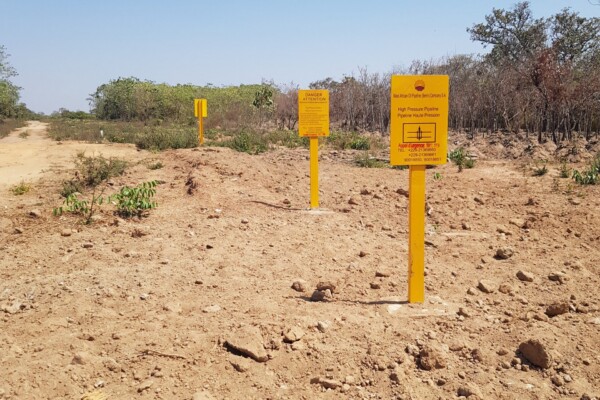
Large-scale infrastructure as an instrument for local development? The Niger-Benin Export Pipeline and its impact on rural communities in northern Benin
January 14, 2026Operational since March 2024, Africa’s longest crude oil pipeline, the Niger-Benin Export Pipeline (NBEP), connects the oil fields of Agadem in eastern Niger to the port of Sèmè-Kpodji in southern Benin. like other large-scale infrastructure investments, the NBEP promises to bring significant benefits to both its investors and its host countries. The NBEP project is expected to bring socioeconomic

Shifting frontlines in October, November and December – Limits of diplomacy: AFC/M23 advances after Washington Accords
December 19, 2025On 4 December 2025, Rwanda and the Democratic Republic of the Congo (DRC) signed the US-brokered Washington Accords for Peace and Prosperity, committing to cease hostilities, establish a permanent ceasefire, and implement the 25 April Declaration of Principles and the 27 June Peace Agreement. However, critical questions have been raised about the prospects for lasting peace in eastern DRC, as Kig
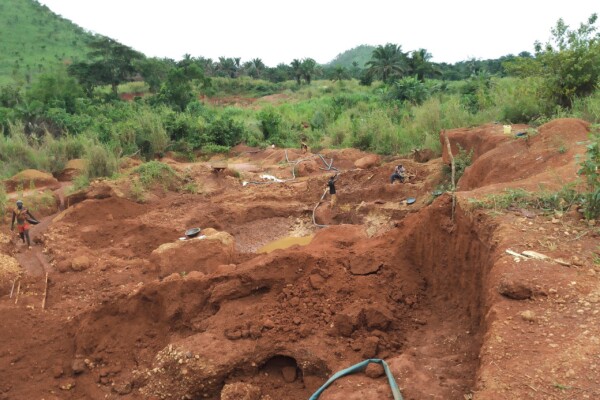
Mapping artisanal mining sites in the Kibali gold mine concession in Faradje territory, Haut-Uélé, DRC
December 8, 2025In the Faradje administrative territory in the northeastern Democratic Republic of Congo’s Haut-Uélé province, more than 5,000 people rely on artisanal gold mining to earn a living and support their families. Many artisanal-mining families have done so for generations. They currently work on sites that now fall largely within mining permits owned by Kibali Goldmines (Kibali), a joint venture of Ba

Pastoralism in West Africa: From a vector of conflict to a tool for peace and sustainability?
November 26, 2025Since 2020, West Africa has been experiencing political turmoil characterised by a series of coups d’état, which led to the emergence of two blocs: the coastal countries, which are still members of the Economic Community of West African States (ECOWAS), and Burkina Faso, Mali and Niger, who founded the Alliance of Sahel States (AES) in 2023. Combining literature review with primary data collected
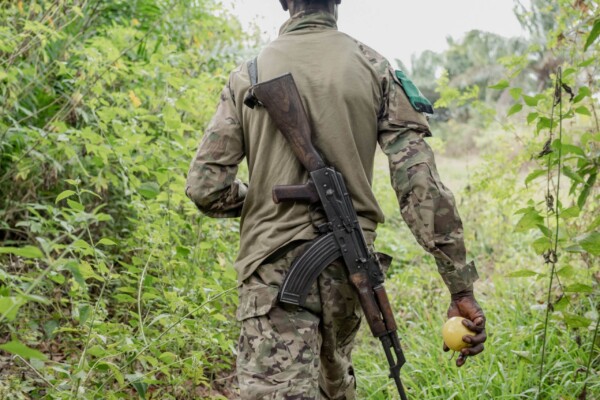
The weight of silence: How the Mobondo revolt is shaking western DRC
November 20, 2025Since 2022, western Democratic Republic of Congo (DRC) has been plagued by a major security and humanitarian crisis, with more than 5,000 dead, and 280,000 still displaced. While international attention has focused on the violent conflicts in eastern DRC, an intercommunity conflict at the on the outskirts of Kinshasa is sinking into a spiral of violence, with very little attention from national au

M23’s territorial advances in July, August, and September 2025 – Escalating violence and fragile peace in eastern DRC’s Kivu regions
October 17, 2025New peace agreements from Washington and Doha have brought hope for initiating a pathway to resolve the ongoing M23-conflict in DRC’s eastern territories in recent months. However, after the signing of the Declaration of Principles in Doha on 19 July, direct negotiations between the DRC and AFC/M23 were intended to result in a comprehensive peace agreement and were planned to begin no later than 8
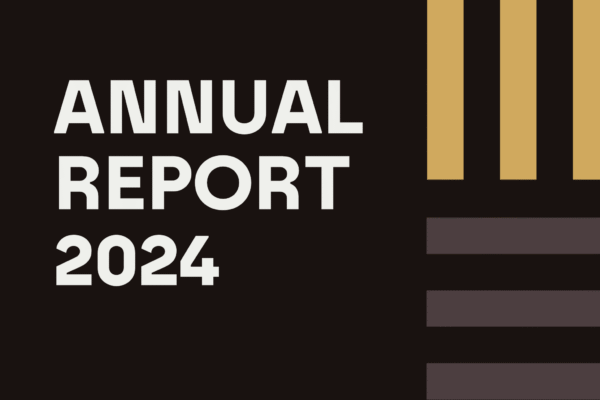
Annual Report 2024
September 12, 2025The past year has left many of us witnessing a collapsing world order. In this rapidly evolving global landscape, marked by increasing geopolitical fragmentation, growing competition over critical minerals, and shifting alliances, IPIS has remained focused on its mission: provide governments and private sector actors with fact-based perspectives, support civil society across Sub Saharan Africa and

Impact of Unconditional Cash Transfers on socio-economic and subjective well-being in an artisanal mining community in the DRC: Highlights from a midline assessment
July 18, 2025Cash transfer programmes that provide financial support directly to households have been implemented in many countries as an alternative strategy to fight poverty and to strengthen social protection. In 2021, the Belgian non-profit organisation Eight launched a UCT programme in an artisanal mining zone in the province of Maniema, in the Democratic Republic of Congo. IPIS conducted a pilot and cont

M23’s territorial advances in June – A long path to peace: Renewed efforts to resolve the M23 conflict in Eastern Congo
July 18, 2025New mediation efforts have been made throughout June to end the ongoing conflict between the Rwandan-backed M23 rebels and pro-government forces in the North and South Kivu regions of eastern Congo. On June 27th, the Democratic Republic of Congo and Rwanda signed a peace agreement in Washington, D.C., aimed at de-escalating tensions and fostering regional stability after years of conflict in easte

Diamonds, conflict and crime in the Central African Republic: The lifting of the last Kimberley Process embargo
June 17, 2025For over a decade, the Central African Republic (CAR) has been at the center of international efforts to curb the trade in conflict diamonds. In 2013, the Kimberley Process (KP) imposed a rough diamond export embargo following a violent coup and widespread reports of rebel financing through diamond mining and trade. While the embargo was partially eased between 2015 and 2019, further progress stal

M23’s territorial advances in May – From Doha to Goma: The disconnect between diplomacy and reality in Eastern Congo
June 12, 2025Despite the ongoing peace negotiations between the Rwandan-backed M23 rebels and the Congolese government in Doha (Qatar), and the signature of a declaration of principles between Rwanda and the DRC, under the patronage of the United States in Washington, D.C. in April, the evolution of the conflict in eastern DRC has shown no sign of abating.

Diamonds in the DRC: A sector struggling to shine again
April 23, 2025The Democratic Republic of the Congo (DRC) is an important player in the global diamond industry, with considerable untapped potential. This report discusses the current state of play in the DRC’s diamond mining sector, including production trends, key challenges, as well as efforts and opportunities to revive the sector and to increase its impact on local development and socio-economic well-being

Chinese investment in Tanzania’s small-scale mining: The challenge of technical support and regulatory oversight
April 7, 2025DARUBINI – TANZANIA BRIEFING – MARCH 2025 Chinese investments in Africa’s mineral sector have expanded rapidly in recent years, driven by China’s increased resource demand, the continent’s abundant mineral reserves and the risk-taking entrepreneurial culture among Chinese investors. To address concerns about ethical practices, the China Chamber of Commerce of Metals, Minerals, and Chemicals Import

The (new) M23 offensive on Goma: Why this long-lasting conflict is not only about minerals and what are its implications? – Q&A
February 6, 2025By the morning of January 29th, the rebels largely controlled the strategic city of Goma. To provide a quick and understandable explanation of the causes of this humanitarian crisis, the role of natural resources, and in particular minerals, is often overemphasized. While mining and mineral trade inevitably play an important role — being a vital part of the local economy — it is important to asses

Balancing prosperity and rights: Advancing Tanzania’s Business and Human Rights agenda in extractives
January 30, 2025DARUBINI – TANZANIA BRIEFING – JANUARY 2025 In today’s global business environment, corporate responsibility towards host community welfare, particularly safeguarding and respecting human rights, has become a pivotal concern. The issue reached a watershed moment in 2011 with the development of the United Nations Guiding Principles on Business and Human Rights (UNGPs). These principles rest on a th

Tanzania’s path to ethical sourcing: Enhancing participation in global forums
October 31, 2024DARUBINI – TANZANIA BRIEFING – OCTOBER 2024 The global focus on responsible business conduct, particularly in extractive industries, has intensified discussions around human rights and ethical practices in mineral supply chains. The Organization for Economic Co-operation and Development (OECD) has taken a leading role in shaping the discourse, developing due diligence guidelines for responsible bu
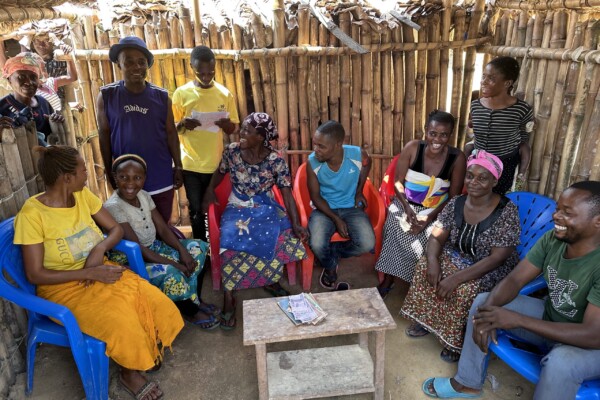
Unconditional Cash Transfers (UCT) in the DRC: A pilot study assessing the socio-economic effects in an artisanal mining zone of Maniema Province
October 16, 2024Building on previous experience in Uganda, the Belgian organisation Eight World vzw started in October 2021, an Unconditional Cash Transfer (UCT) pilot project in a village in an artisanal mining zone in the territory of Pangi, in Maniema province, in the eastern Democratic Republic of Congo (DRC). IPIS has undertaken a comprehensive study to evaluate key indicators related to the socio-economic,
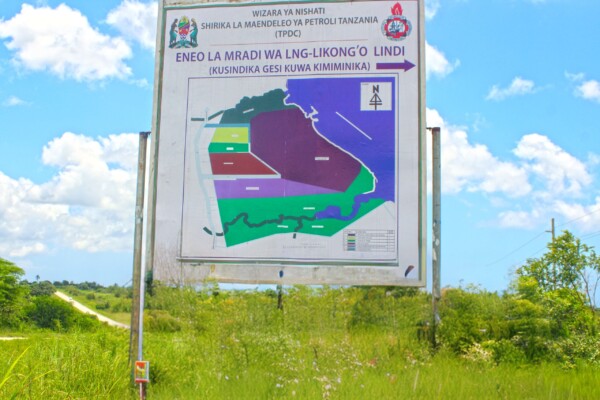
Advancing responsible oil and gas management: The Tanzania Liquified Natural Gas Project
August 12, 2024DARUBINI – TANZANIA BRIEFING – AUGUST 2024 The global energy landscape is undergoing a profound transformation. Today, Tanzania is on the brink of finalizing a Liquefied Natural Gas (LNG) export deal. The Likong’o Liquefied Natural Gas Project aims to exploit the reserves discovered in an offshore basin in the Indian Ocean, with an estimated 57 trillion cubic feet of gas intended for export. The T
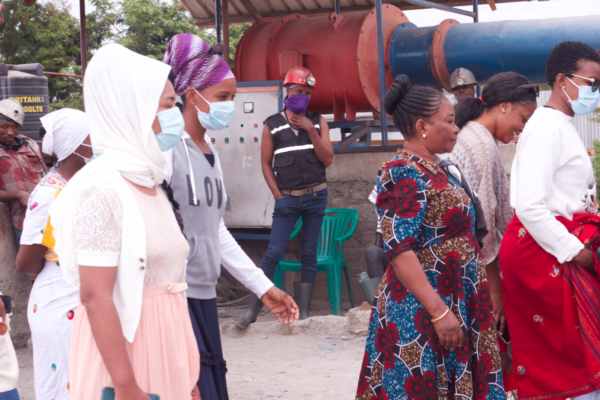
Unearthing equality: Women’s empowerment in Tanzania’s extractive sector
April 18, 2024DARUBINI – TANZANIA BRIEFING – APRIL 2024 While driving economic growth and contributing to welfare, the benefits of Tanzania’s extractive sector have not been equitably distributed among all segments of society, with women being notably disadvantaged. In this briefing, IPIS and its partners look at the realities of women’s participation in both small and large-scale mining. The briefing iden
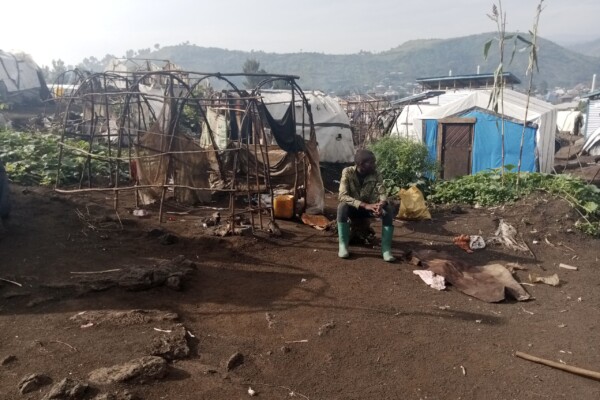
The M23 “version 2” – Local stakes, motivations, perceptions, and impacts
April 4, 2024Since 2021, the eastern part of the Democratic Republic of Congo (DRC) has once again fallen victim to the “March 23 Movement” (M23). Supposedly defeated in 2013, the M23 took up arms again in 2021, and by 2022 had rapidly seized vast territories in the south-east of North Kivu province.

